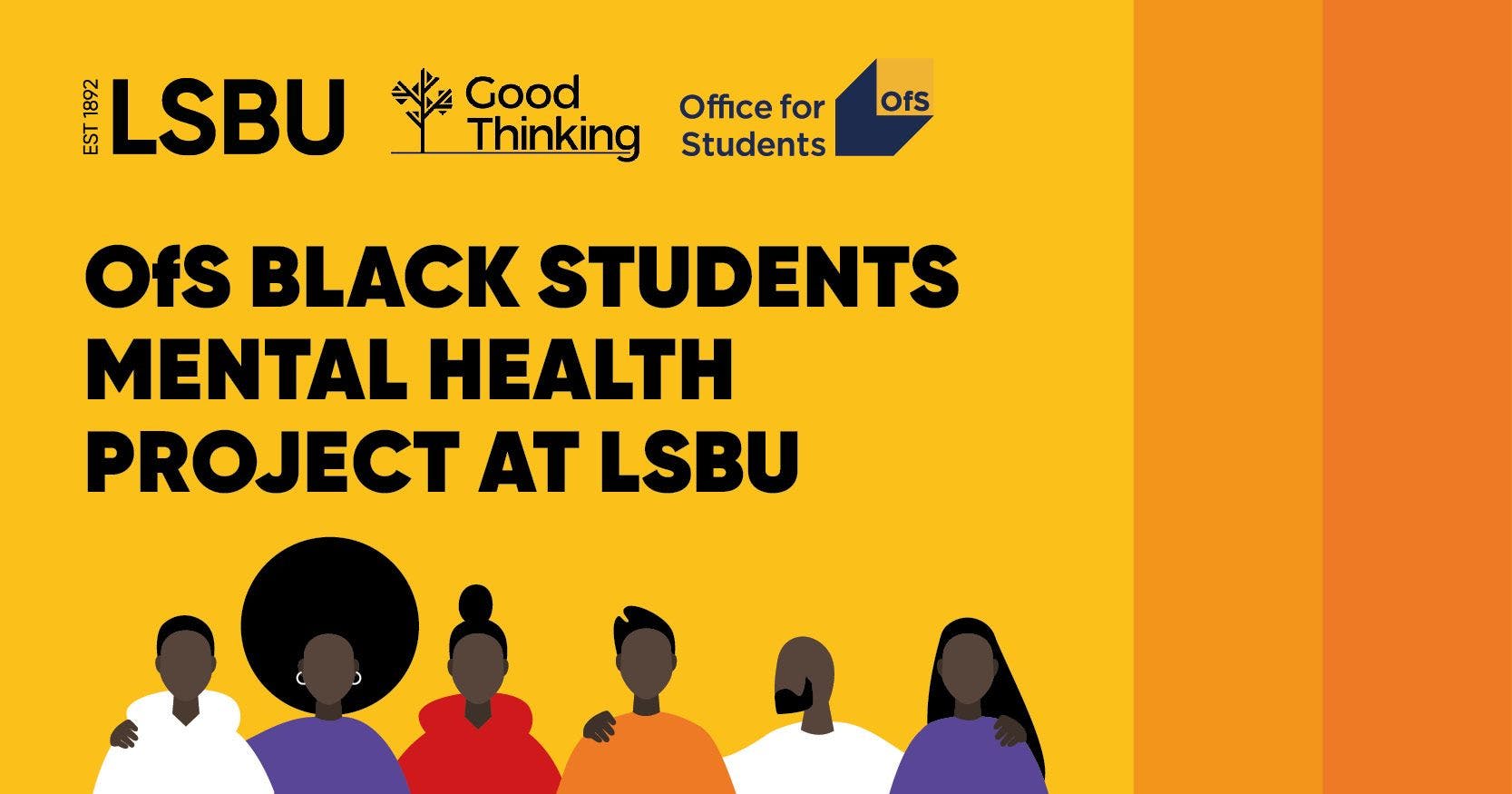An important message from Good Thinking
We regret to inform you that the Good Thinking service will be closing on 31 January 2026. This has been a difficult decision after eight years of supporting Londoners.
If you’re struggling with your mental health, please visit Every Mind Matters or Hub of Hope, or contact your GP, NHS 111, or the mental health team in your borough. For more information about the closure, read our FAQs.We have created an archive of the Good Thinking website for healthcare professionals.Approved by
LAST REVIEWED 20 March 2025
Let’s talk about mental health
A guest blog by the Black Students Mental Health Project at London South Bank University (LSBU). This blog explores the benefits of getting to know yourself and seeking mental health support when you feel you need it.
According to figures from the UK Government, in England, black people are least likely to be having treatment for mental or emotional problems compared to other ethnic groups (only 6.5% of the black general population were doing so at the time the data was published, compared to 14.5% of white British people).
Over the last few years, many changes have happened in the world and in our personal lives. Many people felt isolated, unsafe and abused during the COVID-19 pandemic and may still live with that trauma.
Deciding to seek counselling may seem overwhelming, especially if you do not know how to communicate your feelings. But that’s not the only way to find inner peace or understand yourself. Journaling and self-reflection can also get you there.
Here are a few questions that you can go through on your own or with a friend.
Get to know yourself...or a friend
- What is my favourite thing about my personality?
- I am happiest when…?
- I feel peaceful when…?
- What is unique about me?
- What do I feel most confident about?
- What traits do I admire in other people?
- What traits don’t I like in other people?
- What is my love language?
- How do I like being apologised to?
- What do I think would make me happy?
- What habit would I change?
- What achievement am I most proud of?
- What is one thing I’ve been procrastinating about getting started?
- Do I fulfil promises I’ve made to myself? If yes, how does that make me feel? If no, what is stopping me?
- What can I forgive myself for today?
- If 10-year-old me saw me today, what do you think they would say?
Get support at your place of study
If you’d like to talk to someone about any concerns you have about your mental health, your university’s wellbeing service is a good starting point. You can use the search function on the Student Space website to find support available at your place of study.
At London South Bank University, for example, students can speak to Mental Health and Wellbeing Advisors, counsellors and multi-faith chaplains who will provide an empathetic space to discuss any difficulties.
Alternatively, you can reach out to a mental health charity or other support organisation, such as Shout or The Mix.
Useful resources
This blog was written as part of the Office for Students' Black Students Mental Health Project at London South Bank University. Check out the full range of wellbeing resources available on the Good Thinking website.
Explore the resources >















